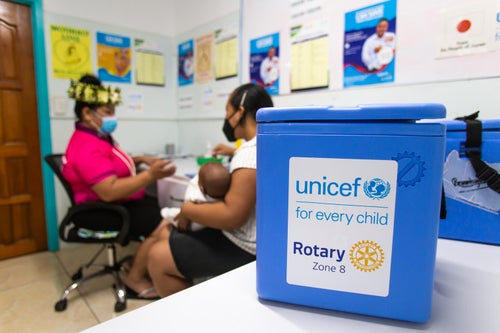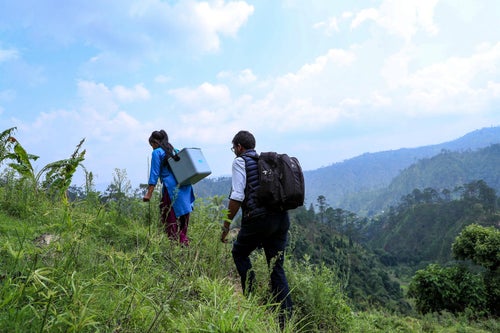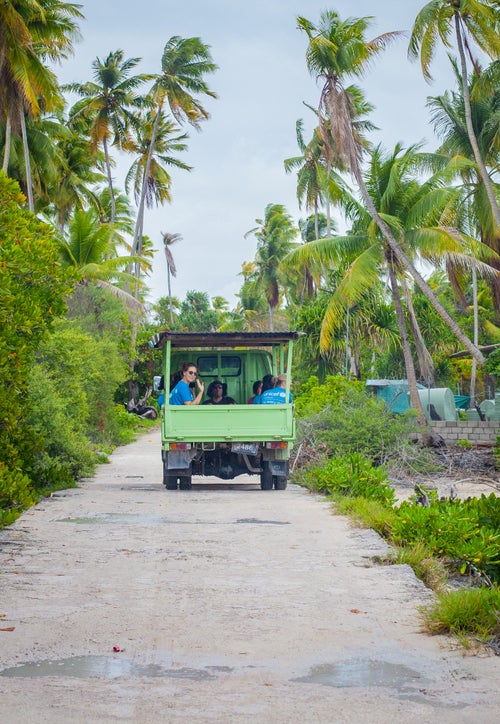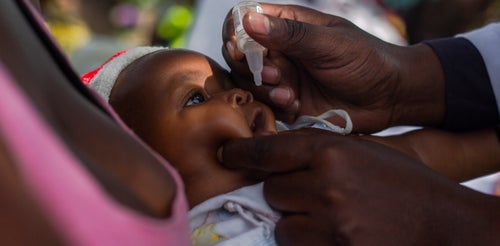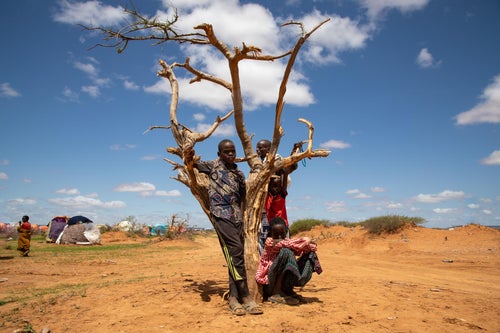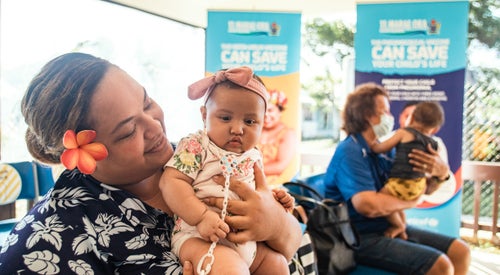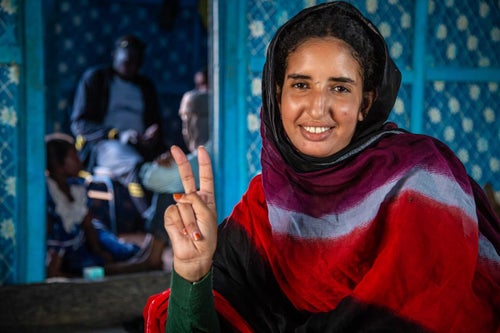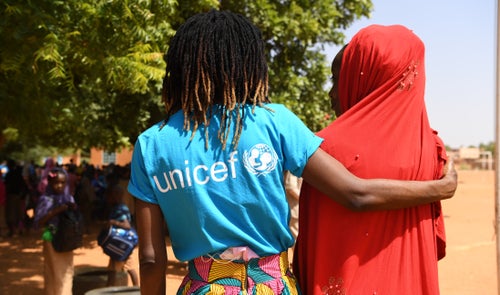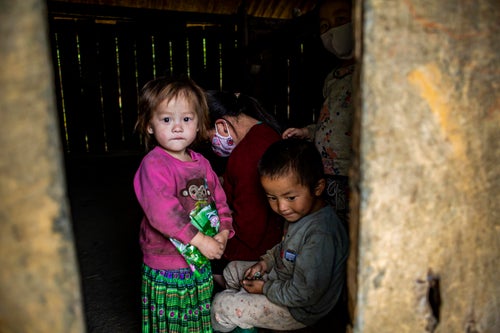A little vial of medicine or a shot in the arm of a crying toddler who's scared of needles might not sound like the ideal gift, but for some it is all they want.
Meet four people that will tell you why vaccines are so precious and important.
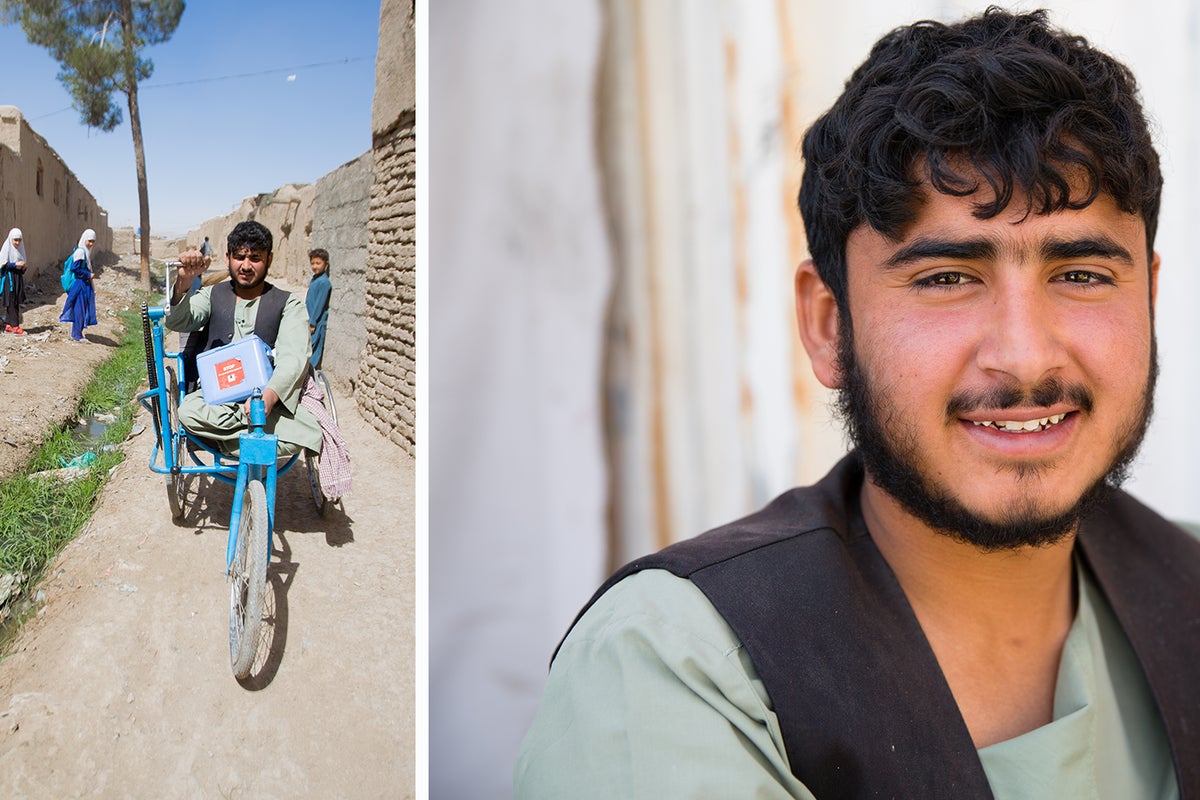
Meet Asadullah
Polio survivor, Asadullah, was born during a long period of fighting in Afghanistan when vaccine workers were unable to reach and immunise him against polio.
"I can’t even do simple things and I must be carried by my friends. Imagine how it feels to be someone’s luggage,” the 19-year-old says.
Southern Afghanistan has the highest number of polio cases in the world and is just one of four countries - including Nigeria, Pakistan and recently Papua New Guinea - that still carries the polio virus.
Asadullah finds it frustrating that he lost his legs because of a virus that could have been prevented.
But despite this, he is working with Afghan TV and radio to encourage all parents to “give their child the life he never had.”
"I wasn't part of the war, I didn't fight. My friends lost their legs due to the war, but I wasn't involved, so why do I deserve this?" says Asadullah.
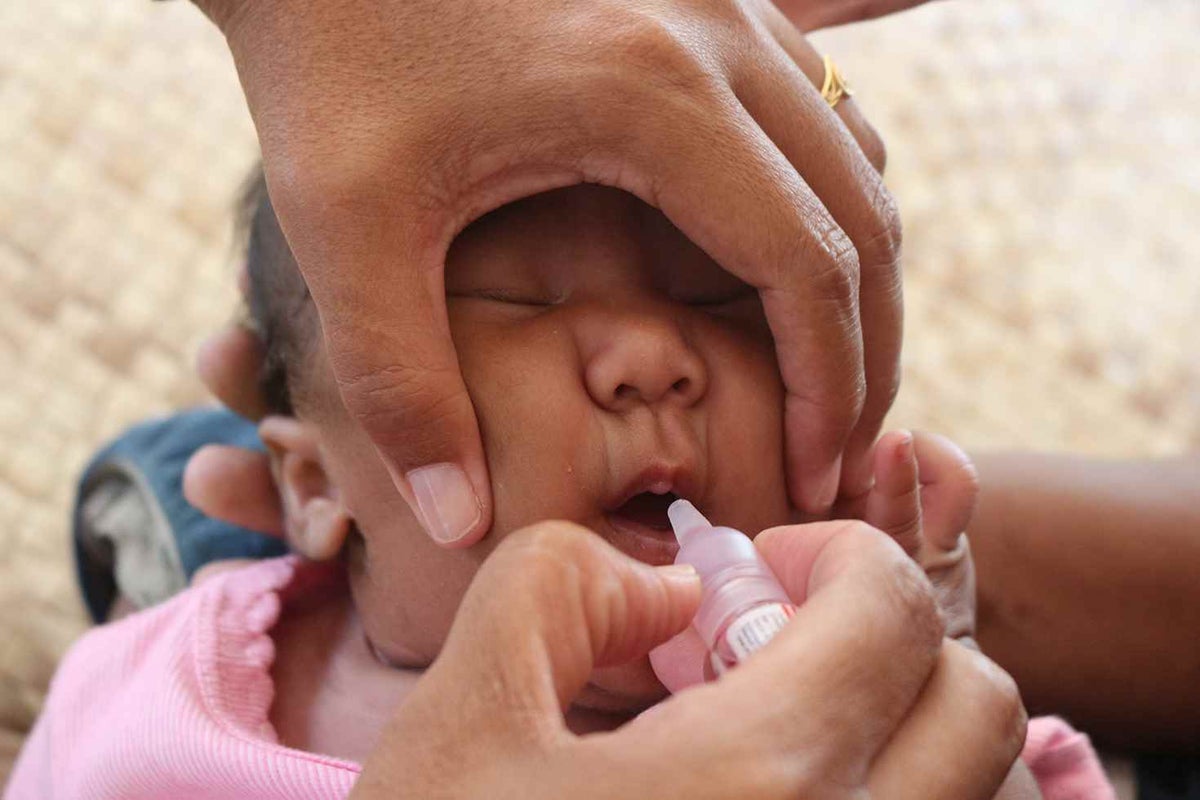
Meet baby Tate
Six-month-old Tate isn't fazed by nurse Rooti squeezing her cheeks and administering the rotavirus vaccine. This will protect her against severe diarrhoea - one of the leading causes of child mortality rates across the Pacific region.
Tate's mother, Bubunrenea, knows just how important vaccinations are for babies like Tate.
"In Kiribati, children are always playing in the dirt and getting sick," she says.
"It's very important to control these diseases and prevent the death of these children."
One in 18 children die before their fifth birthday in Kiribati. These children often die from illnesses which are preventable.
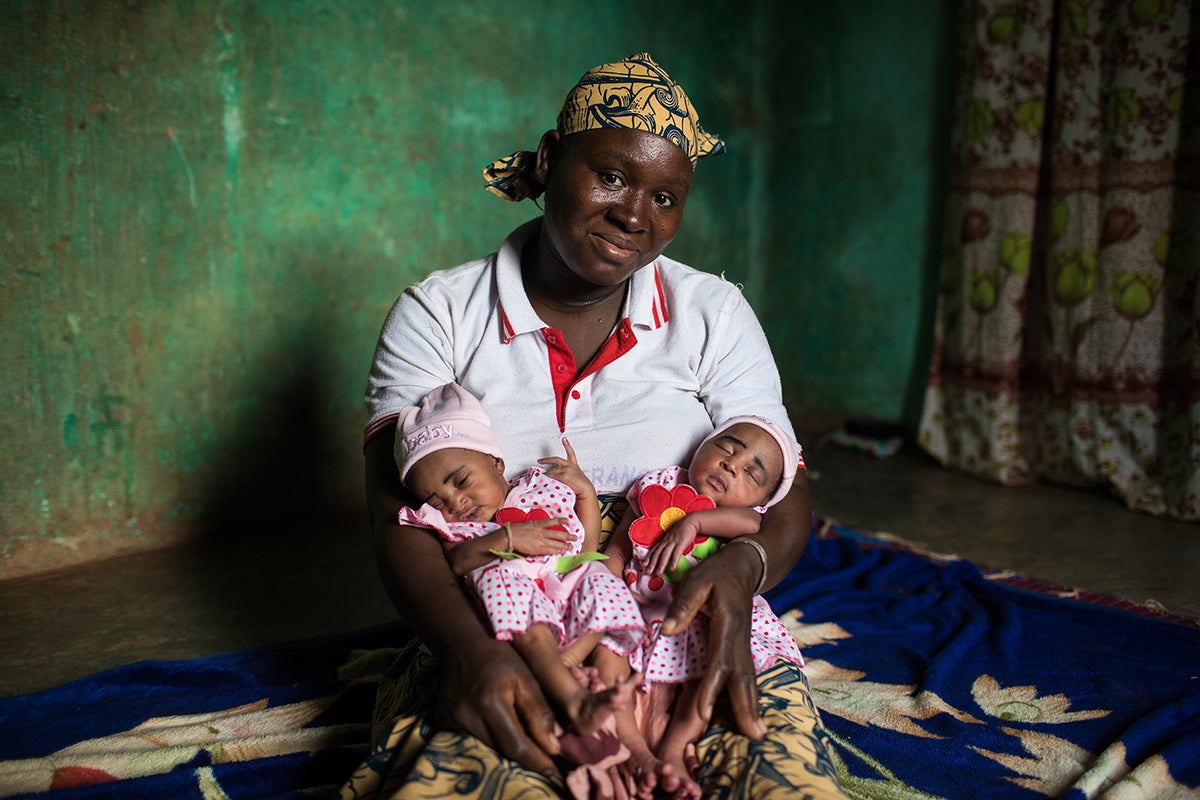
Meet Fatoumata and her newborn twins
Fatoumata is a big fan of vaccines. Her newborn twin girls, Foune and Wassa, were vaccinated against polio the day after their birth.
She says all five of her children are very healthy because they have been immunised against diseases such as polio, yellow fever and measles.
“This is largely thanks to the vaccination programme," Fatoumata says. They prevent them from getting dangerously ill. They would otherwise get sick more often.”
In Bougouni, Mali, vaccines are stored in UNICEF-donated fridges to ensure the temperature stays consistent. If at any stage the vaccine’s temperature drops below two degrees or rises above eight, it can become unusable.
Fatoumata has one message to parents: “Do you see my children? All five of them, they never get sick. That’s because of the vaccines and the vaccination programme.”
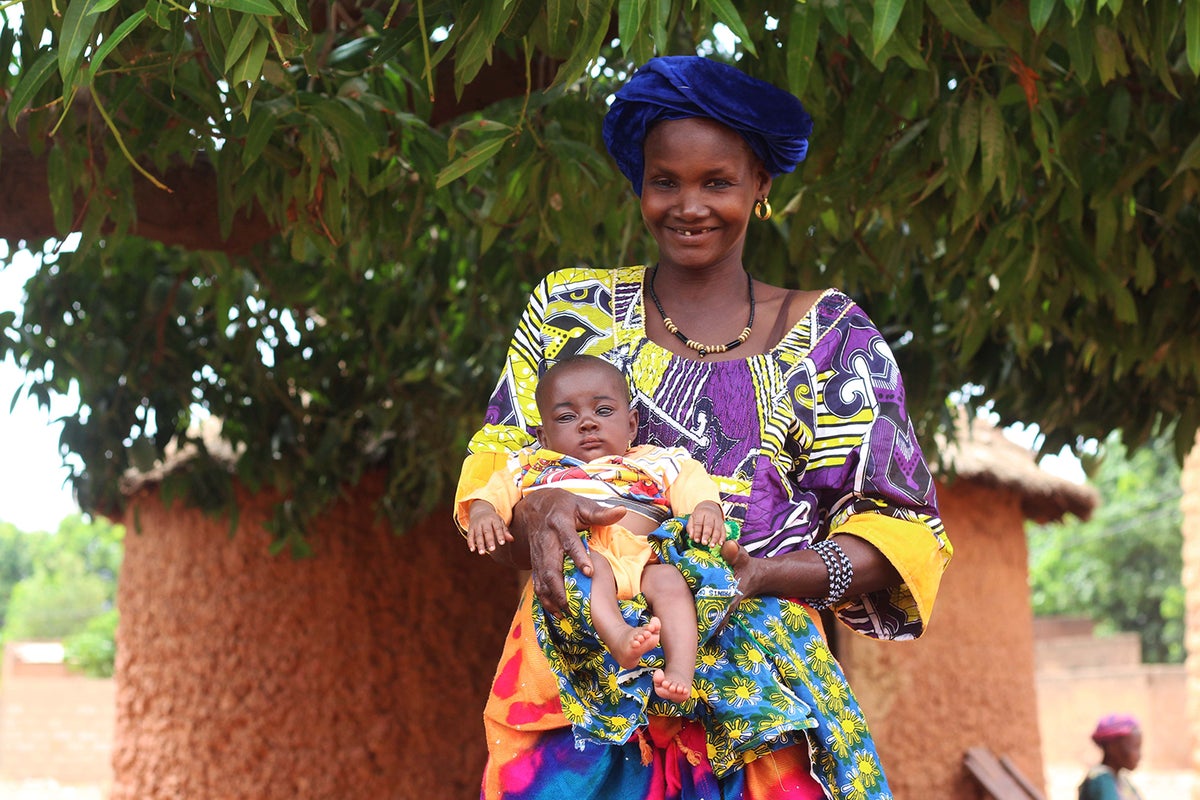
Meet Kadidia
This mother has been through the pain of losing a child not once, not twice, but five times. Kadidia’s first four babies were stillborn. Her fifth baby died from a preventable disease at just three days old.
"She had tetanus,” Kadidia says.
Tetanus is a disease that strikes the poorest and most vulnerable, especially women and their newborns living in areas with limited access to health services and poor hygiene.
The disease is often transmitted when the umbilical cord is cut under unsanitary conditions. In remote rural areas of developing countries, which have limited or no access to medical care, almost all newborns infected with tetanus die.
“After she died, the doctors vaccinated all the other women between 15 and 49-years-old in my village to prevent the disease from spreading to other babies,” Kadidia says.
Earlier this year, Kadidia gave birth to a healthy baby girl named Nahawa. After her birth, hospital staff trained by UNICEF, made sure Nahawa received vaccinations so that she could grow up strong and healthy.
Here’s how it works
- Purchase a UNICEF Inspired Gift. From therapeutic food to clean water, school supplies to vaccinations, we have something for everyone.
- A personalised card will be sent to your loved one telling them about the life-saving impact they're having on children.
- Real supplies will be dispatched from a UNICEF warehouse to wherever they're most needed.
There's no better way to show someone how much you appreciate everything they've done to make your life better. Buy one instantly to make someone's day and forever change the lives of vulnerable children.
Related articles
Stay up-to-date on UNICEF's work in Australia and around the world







